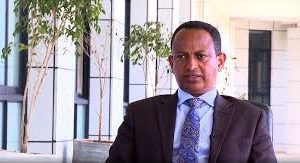Substantial increase of the over 1.5 million internally displaced people in Ethiopia was mainly the result of inter-communal violence, pasture and water rights. Besides, as well Ethiopia has also hosted of 903,200 refugees, with over half from South Sudan, so disclosed high-level International officials.
In the meeting held at United Nations Economic Commission for Africa, Edem Kossi, African Center for Statistics, said that about 2.3 million South Sudanese refugees most were in Sudan, followed by Uganda, Ethiopia, Kenya and Democratic Republic of Congo. And about 949,700 Somali refugees most were in Ethiopia, Kenya and Yemen.
He said that conflict, armed conflict, war, violence, persecution, fear of reprisals, political uncertainty, bad governance, social injustice, human rights violations, lack of opportunities, natural disasters, climate change, health emergencies such as the Ebola outbreak as well as food insecurity and extreme poverty are the main reasons for the displacement of Africa people.
As to him, in Africa, nearly 1 person is forcibly displaced every three seconds as a result of conflict, violence and disaster. Conflict, development and disaster induced displacements as well as survival migration, are the main threats for the life and livelihood of Africa people.
Statistician of Sub-regional Office for Eastern Africa at Food and Agriculture Organization of the United Nations, Kafkas Caprazli on his part noted to The Ethiopian Herald that most drivers of violence and resulting cycles of displacement as well as protracted crisis situations are the result of structural, developmental, economic and political factors.
“Real and substantial improvements can only come about by addressing root causes. Food security, sustainable agricultural practices, access to and management of natural resources, employment and social protection benefits are all key in sustaining peace efforts, mitigating the adverse impact of climate change and supporting populations affected by forced migration to transition towards durable and sustainable solutions,” he added.
He indicated that building the self-reliance of the forcibly displaced is crucial in enabling them to become agents of their own development and of the communities hosting them, particularly when displacement is protracted. Strengthening livelihoods and food security in areas of bordering countries of origin and in the areas where internally displaced persons are settled is not only cost-efficient, but it also leads to longer-term social and economic benefits once countries stabilize.
According to him, the challenges of data on forced migration are interlinked. A systemic approach that involves international standards and improves cooperation, coordination and data interoperability is vital if African governments and partners are to fully understand, prevent and address forced migration when policymaking, planning and risk reduction for achieving aspirations of the 2030 Agenda and Agenda 2063. These data gaps block not only effective responses in humanitarian operations but also practical policy work, development planning to achieve the two Sustainable Development Agendas in Africa by first ending displacement and reducing the risk of it happening in the future.
He went on to say that new technologies and approaches have the potential to overcome some of the challenges in obtaining comprehensive, timely, accurate and disaggregated data on a range of forced displacement situations. With stronger data and evidence, African governments and partners are better equipped to understand and plan for future risk and to monitor progress toward targets under frameworks of UN 2030 Agenda on SD, Agenda 2063, the Sendai Framework and the Paris 21 Agreement.
According to United Nations Economic Commission for Africa digital center of excellence report, a large number of Africans have no legal means of identification. Civil registration and identification systems in African countries are fragmented and under-resourced. About 542 million people in Africa are ‘invisible’. The lack of identification has severe impacts of internal displacement of large numbers of people, all of who need humanitarian assistance. Without legal identity, it has been difficult to deliver humanitarian assistance to them and to repatriate them to their communities and countries following the cessation of hostilities.
The report capitalized that by digitalizing identification and in particular using biometrics of fingerprint, iris, and facial recognition are possible ways to have the ability to both positively and uniquely identify individuals. Therefore, digital identity systems must be inclusive and be designed and implemented with the rights and interests of African people at the Centre. And the systems will be designed to empower individuals and protect online privacy as a fundamental right, adding he said that, digital identity systems will incorporate strong security, safeguarded through legal and regulatory framework. It should be also developed with the aim to strengthen civil registration and vital statistics systems as well as interoperable, as appropriate and in line with data security and privacy standards.
The meticulous report further indicated that digital identity systems implemented in Africa will be built using open standards and will be neutral to any technology. And the African Union, the regional economic communities and the United Nations Economic Commission for Africa, and relevant implementing partners including the United Nations and World Bank will work together on continental and regional standards, and should remain in the control of Africans. Moreover, adherence to these principles will be assessed through the African Peer Review Mechanism.
African Centre for Statistics of United Nations Economic Commission for Africa, Leandre Ngogang mentioned that overcoming displacement vulnerabilities is possible through facilitating security and safety, adequate standard of living, access of livelihoods, restoration of land, housing and property as well as access of documentation.
The Ethiopian Herald January 12, 2020
BY MEHARI BEYENE





